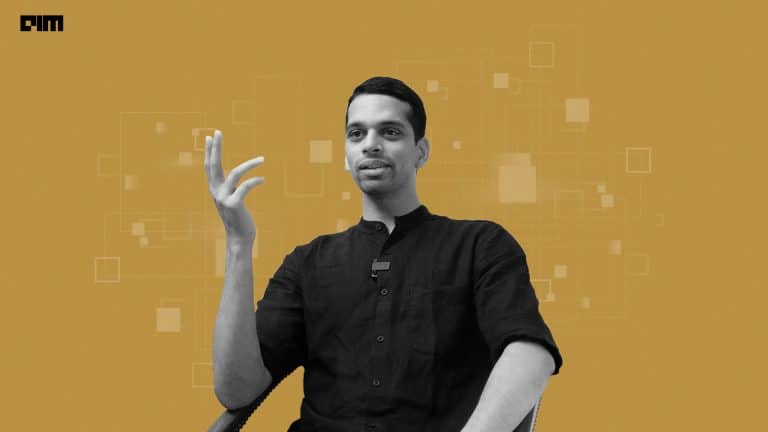|
Listen to this story
|
Think of generative AI, and you have close to 83 percent of companies jumping on the bandwagon, claiming it to be a top priority in their business plans. But, India’s biggest brokerage firm, Zerodha, seems to be viewing this trend cautiously and in a much more meaningful way, not giving in to the AI hype.
“You can’t just unleash these technologies just because you’re excited by it,” said CTO of Zerodha, Kailash Nadh, in an exclusive interaction with AIM. “It should not really be looked at as a solution chasing a problem.”
Race for AI Implementation
Speaking about how AI has been cautiously leveraged at Zerodha, Nadh highlighted the notion of how companies are mostly force fitting AI.
“It’s only been a year, and it shouldn’t be like, oh, there’s an LLM, where do we use it? When you stumble upon a problem that requires an LLM or its capabilities is when you use it,” he said.
Nadh believes that it’s too early in the AI cycle and that there’s a lot of hype and frenzy around it. He references early implementations when ChatGPT was released, and two months later, with its API also being released, everybody started using it.
“Such implementations tend to not be very well thought out. So, this requires more time for us to see better model integration. I’m not talking about LLMs alone, but all kinds of AI/ML technologies that are emerging.”
AI at Zerodha
Zerodha’s adoption of AI has been more of a ‘slow and steady’ kind. They were one of the first companies to even come out with an internal AI policy, to safeguard the jobs of their employees.
“When we instituted [AI policy] it really helped calm down people. A lot of people were really worried, and we have been extremely careful about integrations,” said Nadh.
The company is experimenting with self-hosted open source models to analyse the semantic content of user queries and interactions with the support team, to help classify and address urgent concerns on priority.
“It’s just one R&D project and we’re doing a bunch of very similar things, but you’d notice that these are all things that complement our existing workflows. We’re not trying to replace or outright apply AI or introduce chatbots. We don’t even have an AI chatbot on a support portal. We are being very very cautious and careful and we’re trying to improve the quality of life for the people here using these models and technologies,” said Nadh.
Proponent of Open Source Ecosystem
While AI implementation takes its own course at Zerodha, the company has been a strong advocate and user of open source softwares from the beginning.
Zerodha has built their entire tech infrastructure on open and free open-source softwares that were available and deemed the best in 2013.
“We’ve had a very first-principles, open-source-based, self-hosted, we-need-to-own-the-tech-piece, sort of view from the get-go,” said Nadh.
Zerodha has been, and still are, heavy users of the Python programming language. The company has used PostgreSQL as a database which Nadh believes has served them ‘really well’ over the last decade. Further, they have used Redis, one of the most popular players in memory databases, and also adopted the Go programming language which was in its infancy in 2014.
“It has really served us well and has played a huge part in us being able to scale and build so much with a small tech team,” he said.
“Most companies that have been incorporated or built in the last decade, use 90% open source to power their stuff. So everybody from governments to for-profit corporations to you know tiny little startups that are being built, everybody immediately picks and chooses the highest quality open source to build whatever they want,” said Nadh.
Nadh’s background as an engineer and hobbyist programmer (who is even to this day) has not only driven open source initiatives at Zerodha but also contributed to building and encouraging this ecosystem in India
Open Source for India
FOSS (Free and Open Source) United Foundation, a non-profit organisation where Nadh serves as a founding director, was set up in 2020, to foster the open-source ecosystem in India.
Source: FOSSUnited
“Four years ago in India, we had this huge startup boom. 100% of the startups were built on top of open source technologies one way or another, but you see very little open source innovation coming out of India,” said Nadh, attributing the reason for starting such a community in India.
“We have one of the highest concentration of engineers and software developers in the world, but, if you look at the number of open source projects that come out of India we would rank really really really low, and that is so disproportionate. It is not just sad, it’s also scary,” he said.
“Of the tens of thousands of AI-related breakthroughs in the last 12 months, 98% are from hobbyists and open source communities. That’s the beauty of open source,” said Nadh. However, Nadh pointed out the not-so-favourable environment the industry has built for the community.
“There are skilled engineers, and there are people making all kinds of amazing things. It’s not coming out because there’s no environment that is conducive. So, I would blame the industry as the biggest culprit in us just consuming and consuming and not producing culturally,” he said.
Nadh believes that the culture of innovation transforms when students enter the professional field, where young kids who are spirited coders, who innovate and participate in open source activities and hackathons in colleges, stop contributing when they join a startup or a tech company.
“One of the biggest reasons is that our industry as a whole has not really encouraged engineers to participate and give back. If your company does not have an open source culture where it appreciates using but also strives to give back, then you can’t really produce.”
Nadh also spoke about how the stack has evolved over time, with several dozen high quality free and open source software powering the entire stack. He even highlighted the wide usage of open source software by all companies.
“Most companies that have been incorporated or built in the last decade, use 90% open source to power their stuff. So everybody from governments to for-profit corporations to you know tiny little startups that are being built, everybody immediately picks and chooses the highest quality open source to build whatever they want,” said Nadh.
































